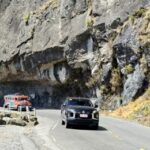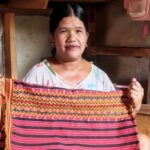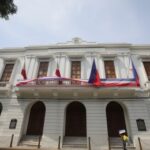MANILA – President Ferdinand R. Marcos Jr. led the Yaman ng Kalusugan (YAKAP) Caravan at Aurora National High School in Baler, Aurora province, where more than 500 students, teachers and school staff received free medical services under the government’s expanded school health program.
The caravan is part of the Clinics for Learners’ Access to School Health Services Plus (CLASS+) initiative of the Department of Education and Philippine Health Insurance Corporation, which connects school clinics to local health systems through the “Konsulta” primary care package.
The Department of Education said over 200 elementary students underwent eye check-ups, while more than 350 teachers, non-teaching personnel and high school students availed of X-ray, ECG (electrocardiogram), urinalysis and ultrasound services.
The Aurora event followed a June caravan in Quezon City that launched the expanded partnership of Department of Education, Department of Health, Philippine Health Insurance Corporation, local government units, and private diagnostics firm 1Life Philippines.
The Department of Education said both the YAKAP Caravan and the CLASS+ program are set to expand nationwide in the coming months.
Aurora National High School
Aurora National High School is a public secondary educational institution located in the Philippines. It was established to serve the local community, providing foundational education to the youth of its region. While specific historical details are limited in public records, such schools are typically founded through local government initiatives to improve access to education.
Baler
Baler is a coastal town in the Philippines, best known as the site of the Siege of Baler, where Spanish soldiers held out in the town’s church for 337 days from 1898 to 1899, unaware that the Spanish-American War had ended. This historic event earned the soldiers international respect and is commemorated as a significant episode in the Philippine struggle for independence. Today, Baler is also a popular surfing destination, renowned for its consistent waves and laid-back atmosphere.
Aurora
Aurora is a city in the U.S. state of Colorado, originally founded in the 1890s as Fletcher by Donald Fletcher. It was later renamed and grew from a small farming community into the state’s third most populous city, largely due to its proximity to Denver and the establishment of military installations.
Department of Education
The United States Department of Education is a cabinet-level department of the federal government, established in 1980 by President Jimmy Carter. Its primary mission is to promote student achievement and ensure equal access to education by enforcing federal financial aid and educational privacy laws. While the federal role in education is limited, the department administers and coordinates most federal assistance to schools and sets national educational policy.
Philippine Health Insurance Corporation
The Philippine Health Insurance Corporation (PhilHealth) is a government-owned corporation established in 1995 to administer the Philippines’ National Health Insurance Program. It was created to provide a sustainable national health insurance system that offers financial access to quality health care services for all Filipino citizens. Its history is rooted in the country’s goal to achieve universal health coverage and ensure that no citizen is denied medical care due to an inability to pay.
Quezon City
Quezon City was established in 1939 and served as the capital of the Philippines from 1948 to 1976, replacing Manila. It was named after Manuel L. Quezon, the second president of the Philippines, who envisioned a new capital city. Today, it is the country’s most populous city and a major center for government, education, and commerce.
Department of Health
The Department of Health is a government agency responsible for public health policy, not a cultural or historical site. Its history is tied to the development of modern public health systems, which were often formalized in many countries during the 19th and 20th centuries to combat disease and improve sanitation. Its primary function is to protect the health and well-being of the nation’s citizens.
1Life Philippines
I am unable to find any verifiable historical or cultural information about a place or site named “1Life Philippines.” It is possible this refers to a modern business, organization, or residential development rather than a traditional cultural or historical landmark. Without more specific context, I cannot provide a reliable summary.






